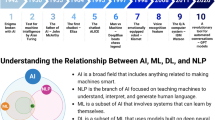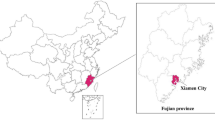Abstract
The incidence and impacts of adverse drug events (ADE) have been extensively studied, but there is an emerging focus on real-time detection systems. These can play an important role, along with systems pharmacology and population-level epidemiology, in a multipronged approach to prevent ADEs and mitigate their harm. Tailoring ADE detection systems to a particular health care setting or ADE type can improve predictive accuracy, but the added complexity reduces its wider applicability. As this approach becomes increasingly used we can imagine detection algorithms of greater complexity but also a set of algorithms encompassing the full range of health care settings and ADE types, thus creating a system that is both accurate and widely applicable.
Similar content being viewed by others
References
Bates DW, Cullen DJ, Laird N, et al. Incidence of adverse drug events and potential adverse drug events: implications for prevention. J Am Med Assoc. 1995;274:29–34.
Lazarou J, Pomeranz BH, Corey PN. Incidence of adverse drug reactions in hospitalized patients. J Am Med Assoc. 1998;279: 1200–1205.
Bates DW, Spell N, Cullen DJ, et al. The costs of adverse drug events in hospitalized patients. J Am Med Assoc. 1997;277: 307–311.
Classen DC, Pestotnik SL, Evans RS, Lloyd JF, Burke JP. Adverse drug events in hospitalized patients: excess length of stay, extra costs, and attributable mortality. J Am Med Assoc. 1997;277:301–306.
Moore N, Lecointre D, Noblet C, Mabille M. Frequency and cost of serious adverse drug reactions in a department of general medicine. Br J Clin Pharmacol. 1998;45:301–308.
Forster AJ, Jennings A, Chow C, Leeder C, van Walraven C. A systematic review to evaluate the accuracy of electronic adverse drug event detection. J Am Med Inform Assoc. 2012;19:31–38.
Sammer C, Miller S, Jones C, et al. Developing and evaluating an automated all-cause harm trigger system. Jt Comm J Qual Patient Saf. 2017;43:155–165.
Guo D, Chen C, Jia W, et al. Development of a computer-assisted adverse drug events alarm and assessment system for hospital inpatients in China [published online ahead of print November 18, 2018]. Therapeutic Innovation & Regulatory Science. doi:10. 1177/2168479018810193.
Dean B. Adverse drug events: what’s the truth? BMJ Qual Saf. 2003;12:165.
Berger SI, Iyengar R. Role of systems pharmacology in understanding drug adverse events. Wiley Interdiscip Rev Syst Biol Med. 2011;3:129–135.
Stausberg J, Hasford J. Drug-related admissions and hospital-acquired adverse drug events in Germany: a longitudinal analysis from 2003 to 2007 of ICD-10-coded routine data. BMC Health Serv Res. 2011;11:34.
Walter SR, Day RO, Gallego B, Westbrook JI. The impact of serious adverse drug reactions: a population-based study of a decade of hospital admissions in New South Wales, Australia. Br J Clin Pharmacol. 2017;83:416–426.
Harpaz R, Callahan A, Tamang S, et al. Text mining for adverse drug events: the promise, challenges, and state of the art. Drug Saf. 2014;37:777–790.
Classen DC, Resar R, Griffin F, et al. “Global Trigger Tool” shows that adverse events in hospitals may be ten times greater than previously measured. Health Aff. 2011;30:581–589.
Rozich JD, Haraden CR, Resar RK. Adverse drug event trigger tool: a practical methodology for measuring medication related harm. BMJ Qual Saf. 2003;12:194–200.
Musy SN, Ausserhofer D, Schwendimann R, et al. Trigger tool-based automated adverse event detection in electronic health records: systematic review. J Med Internet Res. 2018;20:el98.
Author information
Authors and Affiliations
Corresponding author
Rights and permissions
About this article
Cite this article
Walter, S.R., Gallego, B. Detecting Adverse Drug Events: Accuracy and Generalizability. Ther Innov Regul Sci 53, 795–796 (2019). https://doi.org/10.1177/2168479018820045
Received:
Accepted:
Published:
Issue Date:
DOI: https://doi.org/10.1177/2168479018820045




